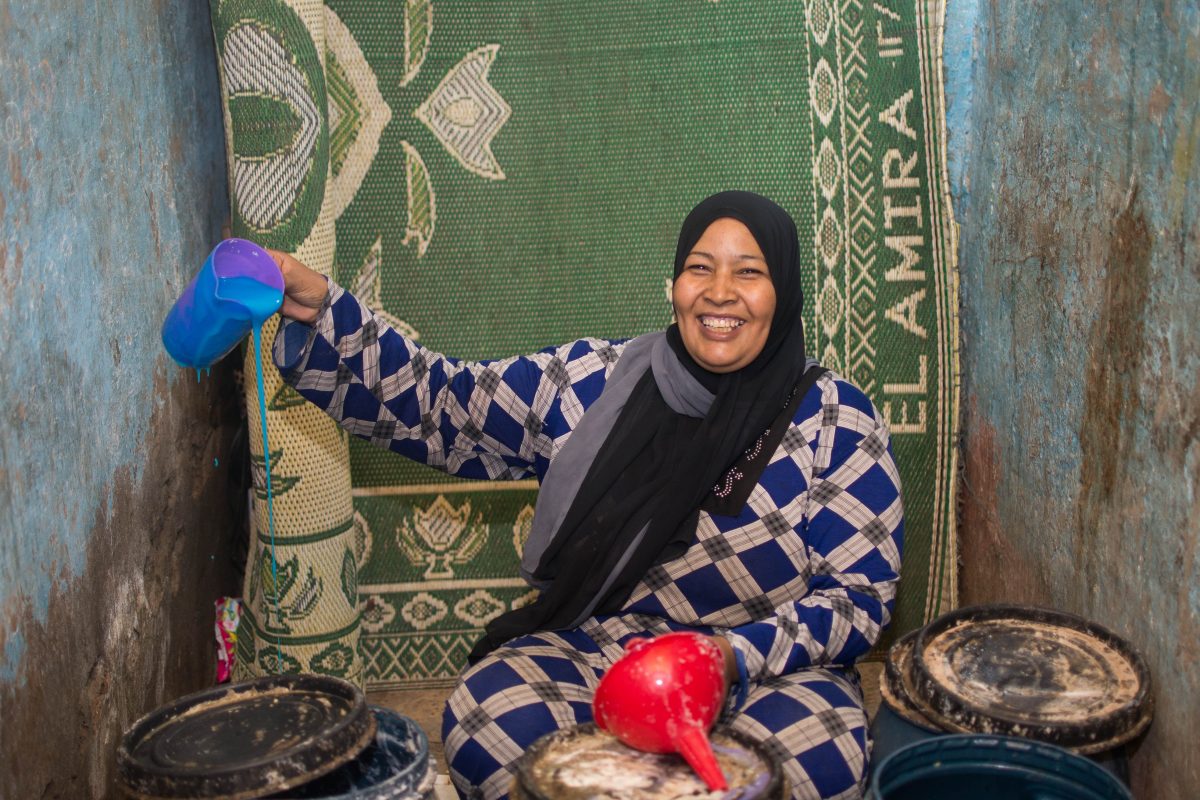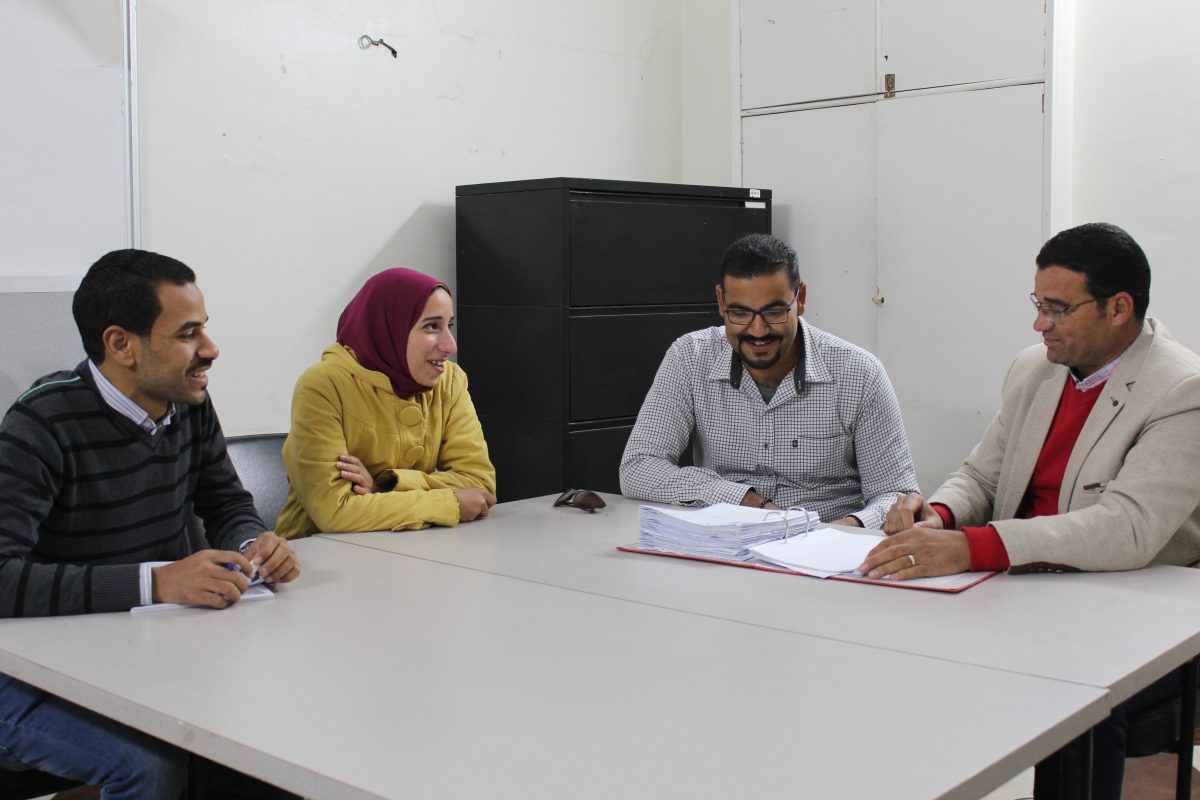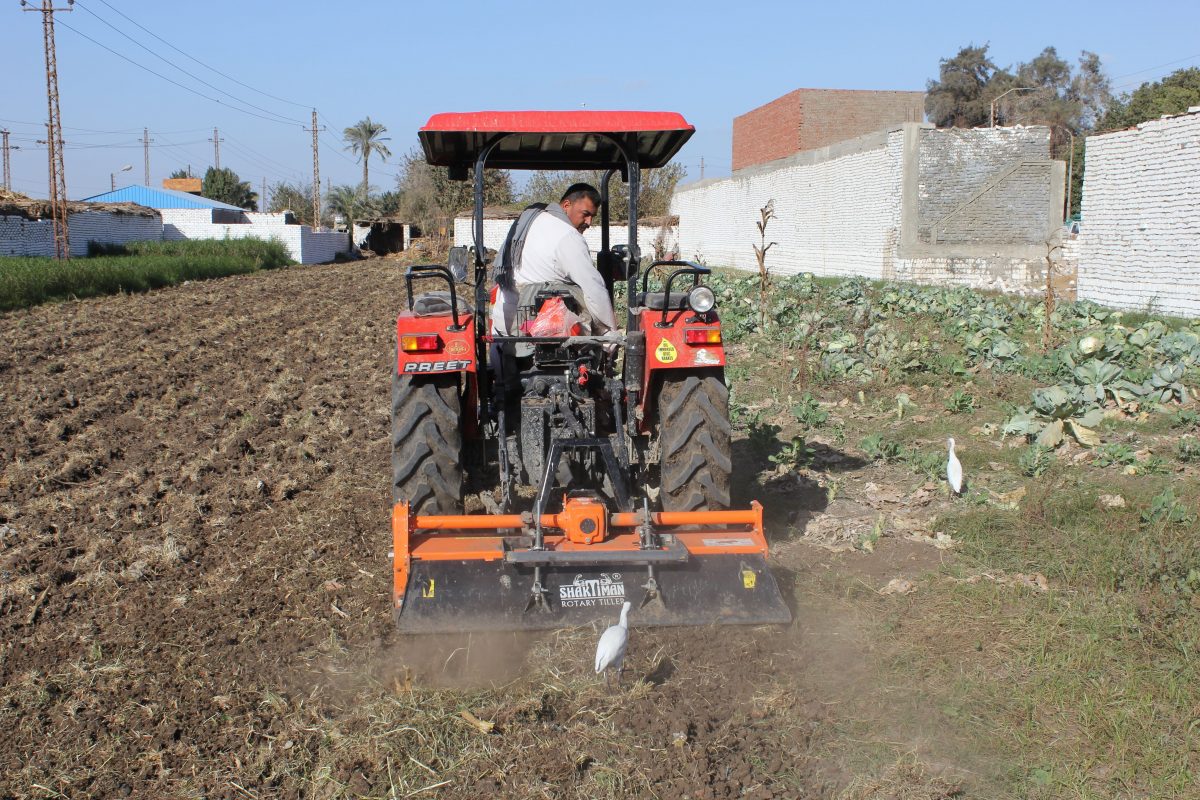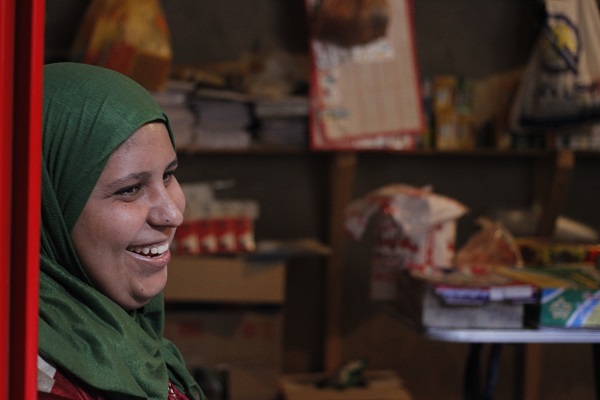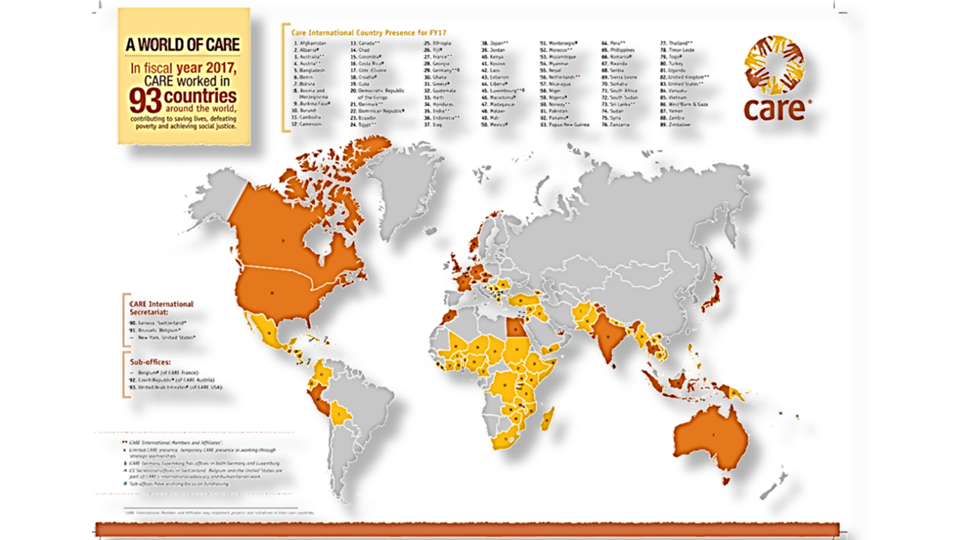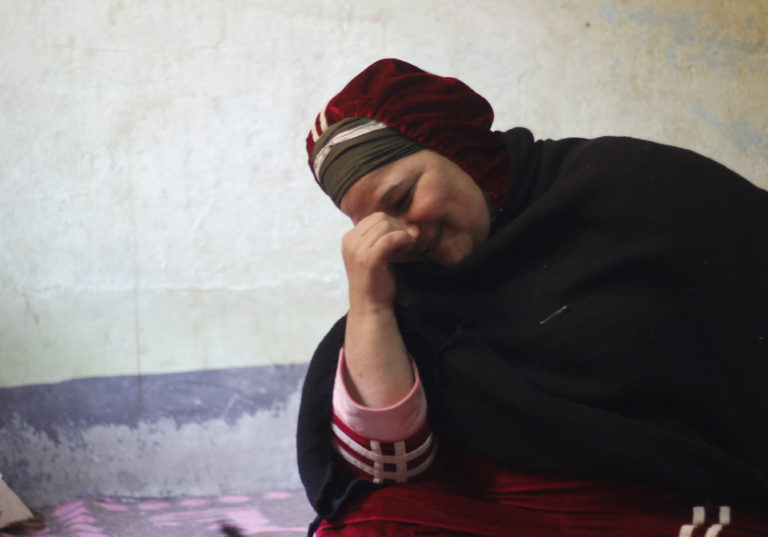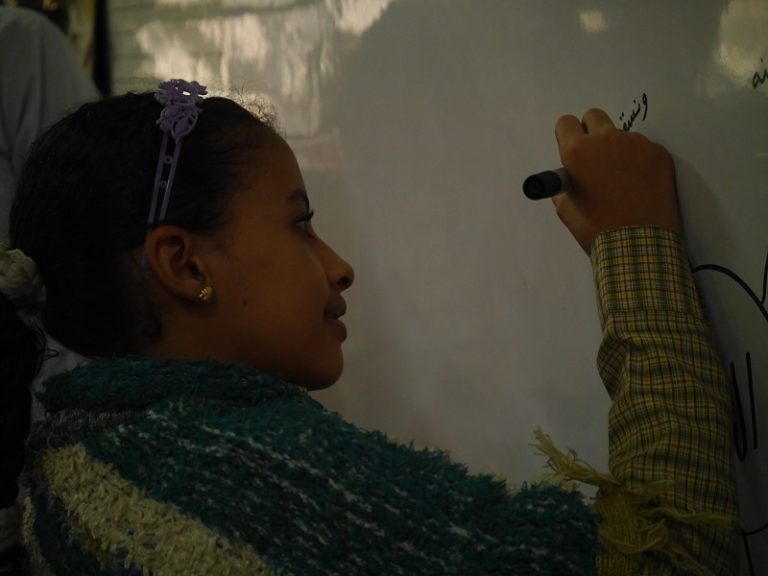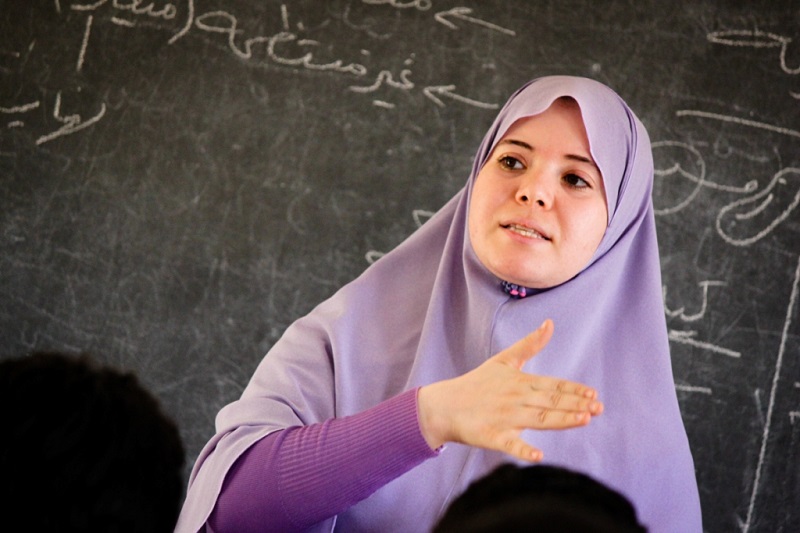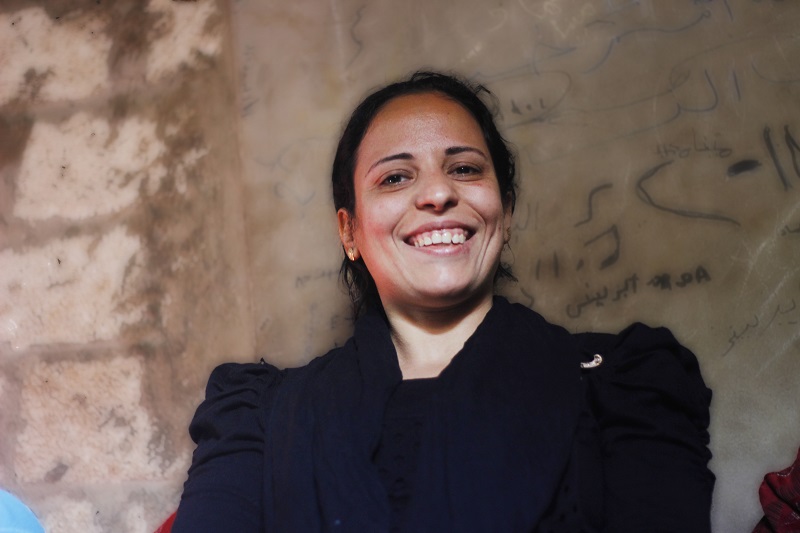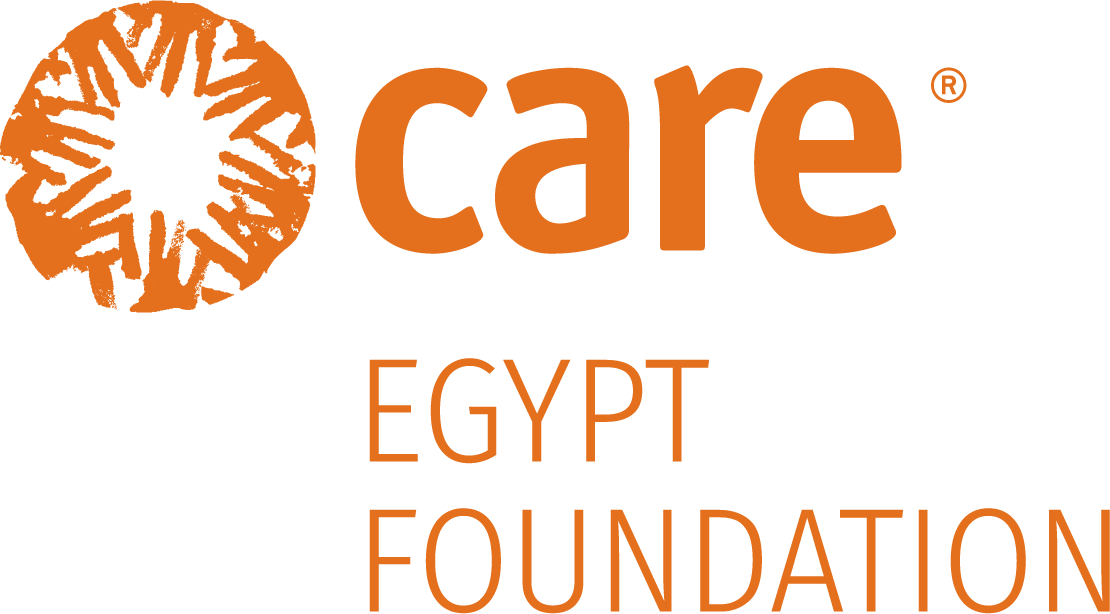Once married ten years ago, Nesma was a
housewife. After a three-month marriage, Nesma
got divorced. Since that time, she did not have
anyone to support her financially. Her father
passed away. Her brother helps but he still needs
to meet the needs of his children. “Even the
EGP 300 divorced pension I used to receive was
stopped due to some employee’s mistake,” she
explains. “We used to argue a lot. He slapped me
many times. When it was all over, I felt very down.
Yet, I had to do something with my life”, she says.
Nesma, now living with her mother, in Dayrout
El-Sherif village, Assiut governorate, started with
a grocery store; however, it did not work out well.
“It was not lucrative enough. Moreover, when my
mother got sick, I had to leave everything for her,”
she says. “But how can we live with my mother’s
four-hundred EGP pension?”
At that time, the project facilitators were reaching
out to local communities in the targeted villages
of both Assiut and Beni Suef. When the facilitator
reached out to her, Nesma did not have income
at all. “I like sewing a lot. Since I was a little girl, I
remember that I loved watching my aunt sewing.
I even learnt it at school but it was not enough.
I dreamt to have my own income. I did not want
to be a burden on my brother anymore. I want to
generate my own income just like he does”, she
underlines.
Marwa Hussein, Agriculture and Natural
Resources Program Director says, “We believe
that development of Upper Egypt is highly
intertwined with women empowerment. For
this reason, CARE, Egypt works on promoting
income-generating activities to create selfsustained
businesses for women. Women in rural areas still are not actively participating in
economic activities. Lately, with CARE efforts,
women are more engaged in income-generating
activities which has led to better positioning for
women in household decision-making and better
livelihoods for their families.”
The association provided training to accepted
applicants. Nesma received a training on sewing
before handing her a sewing machine. “I started
with sewing two bed sheets. I paid EGP 200 for
the fabrics and the association gave me the
sewing machine worth of EGP 1000”, she says.
“I sold the bed sheets, then made more and more.
I started selling to my sister and neighbors. One
of my neighbors took me to the school where
she works to sell my products to her colleagues.”
Since then, Nesma expanded the network of
her clients and went to several exhibitions to
display her products. “I can earn up to EGP 1000
per month. I am now more experienced when
it comes to buying fabrics and bargaining with
traders”, she adds.
“I dream of expanding my business, building-up a
good reputation around the neighboring villages
and maybe start marketing my products online to
penetrate new markets”, Nesma says.


